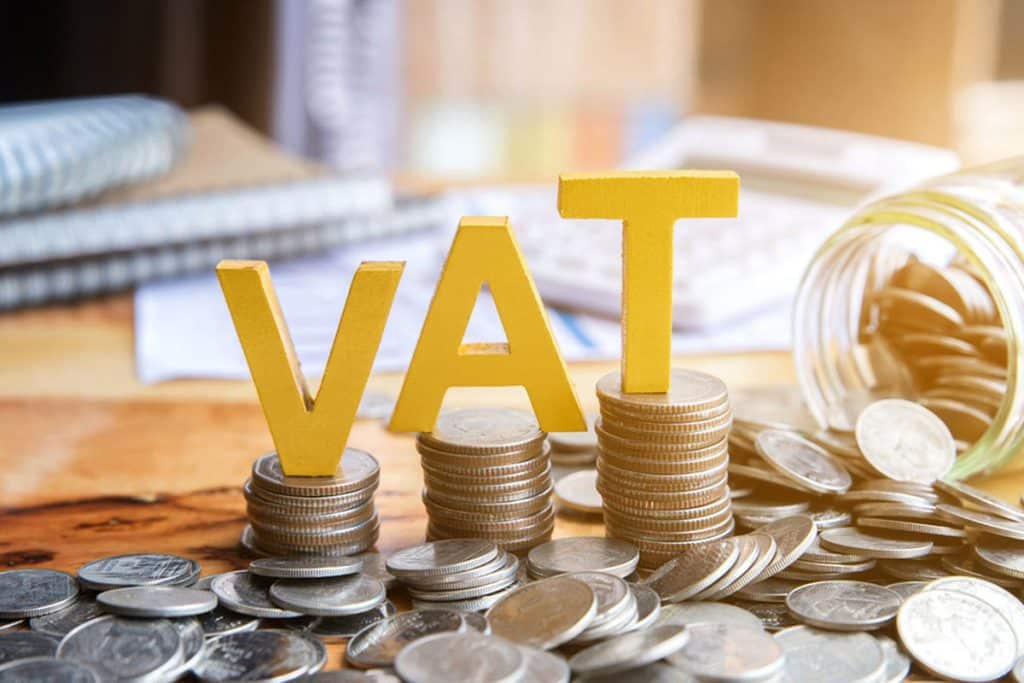+968 9596 3381
Phone Number
[email protected]
Email Address
Mon - Thu: 8:00 - 5:00
Online store always open
Phone Number
Email Address
Online store always open
WhatsApp Us Today
Drop Us an Email Today
Google Map Location
Saturday to Thursday

For Small and Medium-sized Enterprises (SMEs) in Oman, navigating the complexities of Value Added Tax (VAT) can seem daunting. Introduced by Royal Decree No. 121/2020, VAT is a crucial component of Oman’s fiscal landscape, impacting nearly every business transaction. While the concept of VAT is straightforward, ensuring full compliance requires meticulous attention to detail, from registration and invoicing to timely filing and payment.
Non-compliance, even unintentional, can lead to significant penalties, disrupting your business operations and impacting your financial health. This comprehensive guide provides a practical VAT compliance checklist specifically tailored for SMEs in Oman, helping you stay on top of your obligations and avoid common pitfalls.
Setup in Oman understands the unique challenges faced by SMEs. We provide essential PRO services and connect you with trusted accounting partners to streamline your VAT compliance journey, allowing you to focus on growing your business with confidence.
Value Added Tax (VAT) in Oman is a consumption tax levied on goods and services at each stage of the supply chain. The standard VAT rate in Oman is 5%. Certain supplies are zero-rated (e.g., exports, basic food items, healthcare, education), and others are exempt (e.g., financial services, bare land).
For SMEs, understanding VAT is critical because:
Legal Obligation: If your taxable supplies exceed the mandatory threshold, VAT registration and compliance are legally required.
Financial Impact: VAT affects your pricing, cash flow, and profitability.
Penalty Avoidance: Strict penalties are enforced by the Oman Tax Authority (OTA) for non-compliance.
Credibility: Proper VAT compliance enhances your business’s reputation and credibility.
The first step in VAT compliance is determining if your business is required to register:
Mandatory Registration Threshold: Businesses with annual taxable supplies (including zero-rated supplies) exceeding OMR 38,500 are mandatorily required to register for VAT.
Voluntary Registration Threshold: Businesses with annual taxable supplies (including zero-rated supplies) exceeding OMR 19,250 may voluntarily register for VAT. This can be beneficial if your customers are VAT-registered businesses (allowing them to recover VAT) or if you incur significant input VAT on your expenses (allowing you to claim refunds).
Important: Your business must continuously monitor its turnover to determine if it meets or is likely to meet these thresholds.
Before anything, SMEs must understand their status under the Oman VAT law. VAT obligations apply based on:
Annual taxable supplies threshold (OMR 38,500 mandatory / OMR 19,250 voluntary)
Nature of your supplies (goods, services, exports, imports)
Business structure and ownership (e.g., sole proprietorship, LLC)
SME Tip: If you’re close to the threshold, voluntary VAT registration could make your business look more credible to partners.
If your business meets the threshold, VAT registration is mandatory. To register:
Create an account on the OTA online portal
Submit business license, commercial registration (CR), and financial statements
Provide turnover forecast or actual revenue proof
Receive your VAT Certificate and TRN (Tax Registration Number)
Deadline: Registration must occur within 30 days of reaching the threshold.
Oman has a standard VAT rate of 5%. However, not all goods and services are treated equally.
Standard-rated (5%): Most goods and services
Zero-rated (0%): Exports, international transport, certain medicines and medical equipment
Exempt: Financial services, residential rentals, basic healthcare, and education
SME Tip: Misclassifying supplies can result in penalties. Double-check your industry classification.
Every invoice must be VAT-compliant and include:
Your TRN
Customer details
Description of goods/services
VAT rate applied (0% or 5%)
Total amount including VAT
Invoice issue date and serial number
SME Tip: Use accounting software that supports bilingual invoices (Arabic + English) and VAT formatting.
As per the OTA, SMEs must retain VAT records for at least 10 years. These include:
Sales & purchase invoices
Import/export documentation
Debit/credit notes
VAT returns filed
Contracts and payment confirmations
SME Tip: Digitize documents and maintain cloud backups to ensure quick retrieval during audits.
SMEs typically file VAT returns quarterly unless directed otherwise. Returns must include:
Total taxable and exempt supplies
VAT collected from sales
VAT paid on business purchases
Net VAT payable or refundable
Deadline: Within 30 days of the end of each tax period.
SME Tip: Late filings result in OMR 1,000+ penalties, so calendar your filing dates in advance.
You can recover VAT paid on eligible business expenses such as:
Raw materials and inventory
Machinery and equipment
Professional services (legal, accounting)
Rental and utilities (if directly related to taxable business)
Not deductible:
Employee entertainment
Personal use items
Non-taxable expense categories
SME Tip: Maintain a clear segregation of personal vs. business expenses to avoid disallowances.
If you’re importing services (e.g., cloud software, foreign consultants), you’re liable under RCM. This means:
You must self-account for VAT
Declare both output and input VAT in the same return
Maintain a record of foreign invoices
SME Tip: RCM is commonly overlooked. If you use foreign SaaS tools, make sure you’re recording these correctly.
Regular reviews help prevent long-term risks. Internal VAT audits should cover:
Invoicing accuracy
Correct VAT classification of supplies
Supplier compliance
Bank statement reconciliation with VAT reports
Filing consistency
SME Tip: Perform audits at least once a year—or before any expected OTA review.
Compliance depends on people. Ensure key employees are trained in:
Generating compliant invoices
Handling VAT returns
Using accounting software for VAT tracking
Responding to OTA inquiries
SME Tip: Consider OTA-approved training programs or workshops for your finance team.
Working with VAT experts or accounting firms helps avoid:
Penalty risks
Delayed filings
Misclassification
Missed input tax claims
SME Tip: Consider outsourcing VAT filing quarterly, and schedule a yearly consultation with a tax expert in Oman.




The OTA enforces strict penalties for non-compliance, emphasizing the importance of diligence:
Failure to Register: OMR 20,000 fine.
Late Filing of VAT Return: OMR 500 per return.
Late Payment of VAT Due: 1% of unpaid VAT per month or part thereof.
Failure to Issue Tax Invoice: 50% of the tax due on the transaction, minimum OMR 50.
Charging VAT without Being Registered: OMR 5,000 fine and confiscation of collected tax.
Tax Evasion/Fraud: Severe fines (up to OMR 20,000) and/or imprisonment (up to 3 years).
Ensuring VAT compliance can be a significant administrative burden for SMEs. Setup in Oman provides crucial services that streamline your compliance journey, allowing you to focus on your core business:
Company Formation: The first step to VAT compliance is having a legally recognized entity. Our Company Formation Services ensure your business is properly registered with the Ministry of Commerce, Industry, and Investment Promotion (MoCIIP), setting the stage for your VAT registration and seamless integration into Oman’s tax system.
Corporate Bank Account: Accurate financial transactions are the foundation of VAT reporting. Our assistance in opening your corporate bank account in Oman ensures all your business revenues and expenditures are transparently recorded, providing the precise data required for VAT calculations and payments to the Oman Tax Authority.
PRO Services: Navigating the administrative aspects of VAT registration, timely return filing, and communicating with the Oman Tax Authority (OTA) can be complex. Our comprehensive PRO Services are designed to manage these critical tasks for you, ensuring your VAT registration is processed efficiently, returns are filed accurately by deadline, and all necessary documentation is handled, significantly reducing your risk of penalties.
Accounting & Audit Referral: While Setup in Oman handles the administrative compliance, precise VAT calculations, bookkeeping, and preparation of financial statements require specialized accounting expertise. We leverage our network to connect you with licensed and reputable accounting firms in Oman who can manage your daily bookkeeping, prepare your VAT returns, and advise on complex VAT matters, ensuring your compliance is robust.”
Work Visa: “For your finance or operations staff who will be directly involved in managing VAT processes, securing proper legal residency is essential. Our Work Visa services facilitate the smooth acquisition of visas for your key personnel, ensuring your compliance team can operate effectively within Oman.





We assist startups, SMEs, and growing companies in Oman with VAT registration, filing, audits, and more.
✅ Confirm if your business exceeds the VAT threshold
✅ Register with the OTA and obtain your TRN
✅ Classify your goods/services (standard, zero-rated, exempt)
✅ Use VAT-compliant invoices with correct format
✅ Keep all supporting documents for 10 years
✅ File quarterly VAT returns on time
✅ Track input tax correctly and avoid disallowed items
✅ Apply Reverse Charge Mechanism where required
✅ Conduct internal VAT reviews or mini-audits
✅ Train your team and seek professional guidance
Is VAT registration mandatory for small businesses in Oman?
Yes, if your taxable supplies exceed OMR 38,500 annually. You may also register voluntarily if you cross OMR 19,250.
What happens if I don’t register for VAT on time?
You could face financial penalties, backdated VAT liabilities, and possible business suspension.
Can I use Excel for VAT recordkeeping?
Technically yes, but using VAT-enabled accounting software minimizes errors and supports compliance better.
Do I need to issue bilingual VAT invoices in Oman?
Yes, the OTA recommends Arabic + English for all tax documents.
Can freelancers or home businesses register for VAT?
Yes, if their taxable turnover exceeds the threshold.
What if I only sell zero-rated goods?
You still need to register and file returns, but you can claim input VAT on eligible expenses.
Fill out our quick and easy contact form below. Briefly tell us about your vision and goals, and we’ll be in touch shortly to discuss a personalized plan for your success.
Al-Khuwair, Muscat, Sultanate of Oman